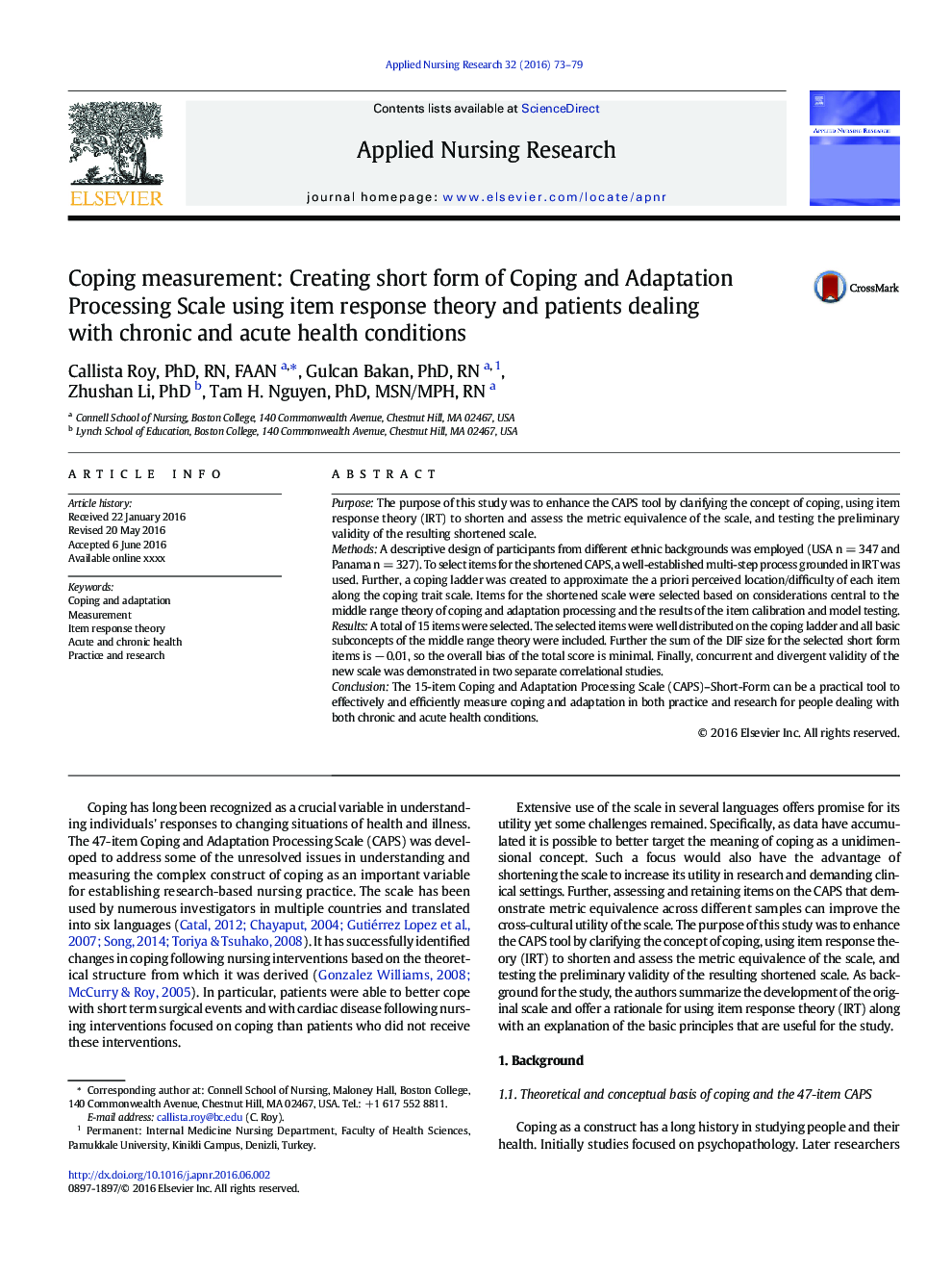| Article ID | Journal | Published Year | Pages | File Type |
|---|---|---|---|---|
| 2644737 | Applied Nursing Research | 2016 | 7 Pages |
PurposeThe purpose of this study was to enhance the CAPS tool by clarifying the concept of coping, using item response theory (IRT) to shorten and assess the metric equivalence of the scale, and testing the preliminary validity of the resulting shortened scale.MethodsA descriptive design of participants from different ethnic backgrounds was employed (USA n = 347 and Panama n = 327). To select items for the shortened CAPS, a well-established multi-step process grounded in IRT was used. Further, a coping ladder was created to approximate the a priori perceived location/difficulty of each item along the coping trait scale. Items for the shortened scale were selected based on considerations central to the middle range theory of coping and adaptation processing and the results of the item calibration and model testing.ResultsA total of 15 items were selected. The selected items were well distributed on the coping ladder and all basic subconcepts of the middle range theory were included. Further the sum of the DIF size for the selected short form items is − 0.01, so the overall bias of the total score is minimal. Finally, concurrent and divergent validity of the new scale was demonstrated in two separate correlational studies.ConclusionThe 15-item Coping and Adaptation Processing Scale (CAPS)--Short-Form can be a practical tool to effectively and efficiently measure coping and adaptation in both practice and research for people dealing with both chronic and acute health conditions.
